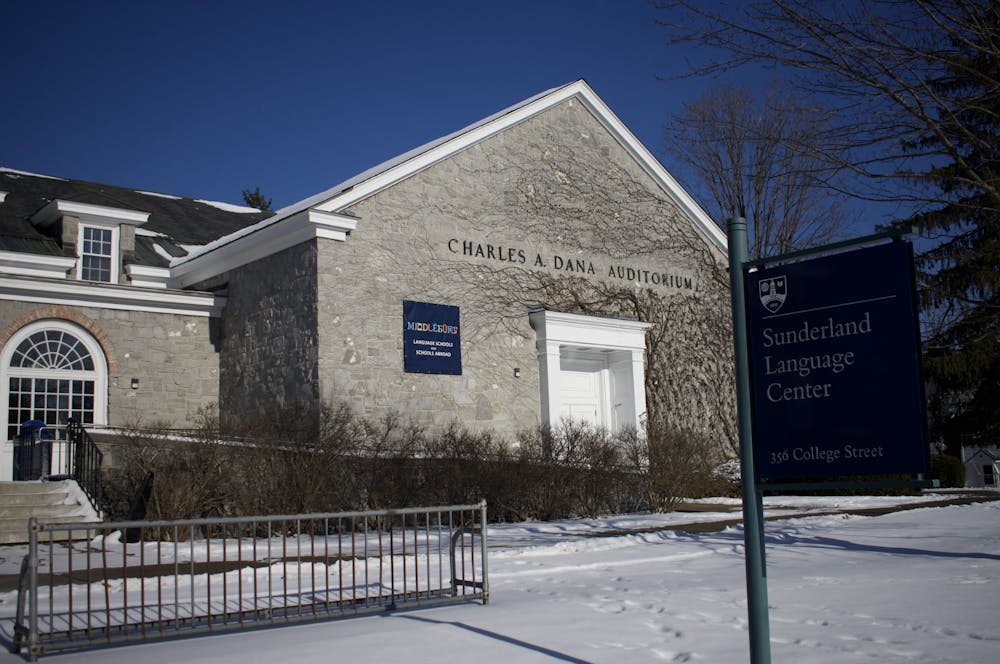Following several years of imbalanced enrollment for its popular study abroad programs, Middlebury has adopted a new system that will assign students who wish to study away for one semester to either the fall or spring semester. The college will give some weight to student preferences and academic needs, but the change is intended to correct uneven enrollment numbers after an increasing number of students have been choosing to go abroad during the spring.
By Nov. 1, all students wishing to study abroad for the 2025–2026 academic year had to complete an application including their preferred semester and location to study abroad, along with their academic or other rationale for choosing it. The week of Nov. 18, students who applied received emails with their study abroad assignments for the following year.
Prior to this year, there was no formal process of applying to a specific semester to study abroad. Noel Schlageter ’26.5 applied to study in Valdivia, Chile for the fall semester of 2024 and the only approval he needed was from his major advisors.
“The instructor approved my study abroad program through an online portal along with the study abroad advisor. However, this was throughout the study abroad application process and never felt formalized. It never felt like a conversation, just a box to check,” Schlageter said.
Associate Dean of International Programs Liz Ross explained the college’s intentions behind developing an assignment process.
“For Middlebury, a small, residential liberal arts college with a large participation rate in off-campus study, it is very important to have a balanced enrollment between the fall and spring semester,” she wrote in an email to The Campus. Ross added that this balance is crucial for on-campus academic programs, housing and student activities to maintain quality programming.
The office recently sent an email to the student body about the advantages of studying abroad in the fall semester. They described benefits such as students being able to more evenly split their time at Middlebury and build deeper relationships after study abroad rather than before, a less rushed process to acquire a student visa, flexibility in extending their study abroad if desired and less competition in program applications, among other reasons.
Spring has traditionally been the preferred semester for studying abroad: projections from 2023 predicted 130 more students would be studying abroad in the spring of the following academic year than in the fall. However, the form of intent students had to submit this year justifying their plans informed the office of all incoming study abroad demand so that they could plan accordingly.
“If a student does not have a compelling rationale for studying away in the spring semester, they may be reassigned to the fall,” Ross wrote, adding that a preference for a certain semester to coordinate studying abroad with friends would not be a valid reason to avoid reassignment.
Ross emphasized that the Office of International Programs considered a variety of factors when making assignments, including whether a student needed another semester of language instruction before going abroad, or if that prerequisite would be fulfilled by attending Middlebury Language Schools over the summer.
If students were displeased with their assignment, they had the opportunity to submit an appeal with their justification for doing so throughout December, without being guaranteed the opportunity to switch. Final applications to study abroad are due Feb. 1.
Nearly 60% of the typical graduating class reports having studied abroad, making the new system a significant development that led some students to reflect on the impact it would have on their time at Middlebury
Ella Powers ’27 plans on studying in New Zealand and completed the form of intent to study away with a request to go in the spring. The program they applied for only operates during the spring, but despite this rationale, Powers was initially assigned to study abroad in the fall.
“It was a bit more complicated since I had to go through the appeal process and I was not able to meet in person with an advisor. However, after emailing, I was able to get my assignment switched to the correct term,” Powers said.
The deadline to submit appeals was Dec. 1, two weeks after assignments were allocated, and students were notified of their appeal decision by Dec. 9. Although the appeal process resolved the situation, Powers found the process to be detrimental for students trying to plan out their time at Middlebury.
“I think the new policy adds an extra layer of stress for students who want to study abroad. Students plan ahead on where they want to go and when they want to go based on their needs. When the school then assigns a term that does not match with these plans, it can create more work and stress for the students,” she said.
For students intending to study abroad for both semesters, like Abeera Riaz ’27, who plans to spend time in Jordan and Morocco next year, the process was more straightforward.
“My assignment process was definitely easier than most of the people I knew. Since I wanted academic year, I knew it would be highly likely to get what I wanted,” Riaz said.
Given that this is the first year this new system is in place, its long-term effects on student life on campus and while studying abroad remain to be seen.




